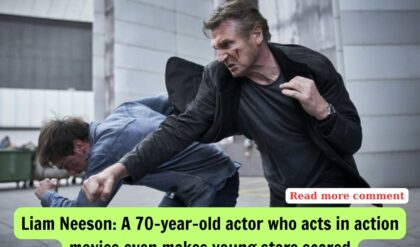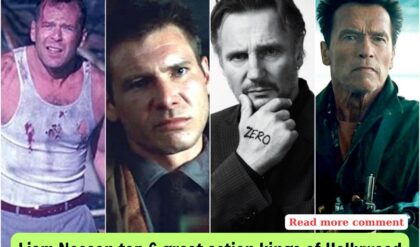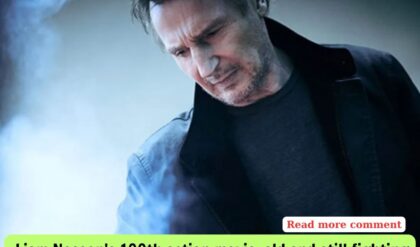In a recent promotional interview with the Independent for upcoming revenge-based movie Cold Pursuit, actor Liam Neeson opened up about a past “primal” personal situation.

When a close friend was raped, Neeson told how he did not react well to the ordeal, though the victim had done herself. Instead, he sought vengeance; questioning the colour of the attacker’s skin and finding it to be black, Neeson “went up and down areas with a cosh… hoping some black bastard would come out of a pub and have a go at me about something, you know? So that I could kill him.”
Viewing any particular black man, and thus all black men, as responsible for the crime of one individual is without doubt racist.
This is so obviously a horrible thought and action that such a point is hardly worth mentioning. Viewing any particular black man, and thus all black men, as responsible for the crime of one individual is without doubt racist.
Yet Neeson is fully aware of this, a point which the authors of click-bait articles purposefully misrepresent in order to make an easy buck, and pitchfork-laden social media mobs ignore in order to fulfil their distorted and counterproductive visions of social justice.
Both are far more morally reprehensible than the recognition of a racial prejudice exercised by oneself, and the public explanation of that error.
In confessing to something so abhorrent in order to educate others to fight against what can be primitive instincts, Neeson was, as Brendan O’Neill suggests, nothing other than brave.
But such bravery is not quite good enough for the self-constructed Twitter moral pedestal. The character assessments came pouring in; Neeson is a racist, is a white supremacist.
His shame and self-disgust (“[i]t was horrible, horrible…”, he says) counts for nothing against what is arising as a truly dangerous act of ostracising people for the terrible things they might have once done.
It matters not that the episode Neeson spoke of was forty years ago, and that he is deeply ashamed; only that his sins must not be forgiven and that he must be pushed out, because people do not change.
the story is also illustrative of the profound problem with the media
Yet the story is also illustrative of the profound problem with the media, who prioritise the release of stories that are guaranteed to sell copies, as opposed to those which will disseminate the truth.
Neeson has been punished for opening up and enlightening, from personal experience, the hard realities that existed – and no doubt continue to exist – with regards to race.
But to have told such a sensible version of what Neeson said would have been far too boring; after all, who wants to be faced with the stark realities of how racial dimensions might actually play out anyway?
When Neeson revealed his own dark experience of racist collective guilt, he spoke valiantly about a personal experience which could have been used to reveal the inner workings of racial dimensions
When Neeson revealed his own dark experience of racist collective guilt, he spoke valiantly about a personal experience which could have been used to reveal the inner workings of racial dimensions.
Instead, it was scooped up and hastily regurgitated as deceitful news, and ignorant yellings from a Twitter mob who are too focussed on punishing people in the name of ‘social justice’, that they lack the intellect and courage to face its unpleasantries. In my opinion, Neeson was brave; his critics were mere cowards.
Image by Sam Javanrouh via Flickr.





